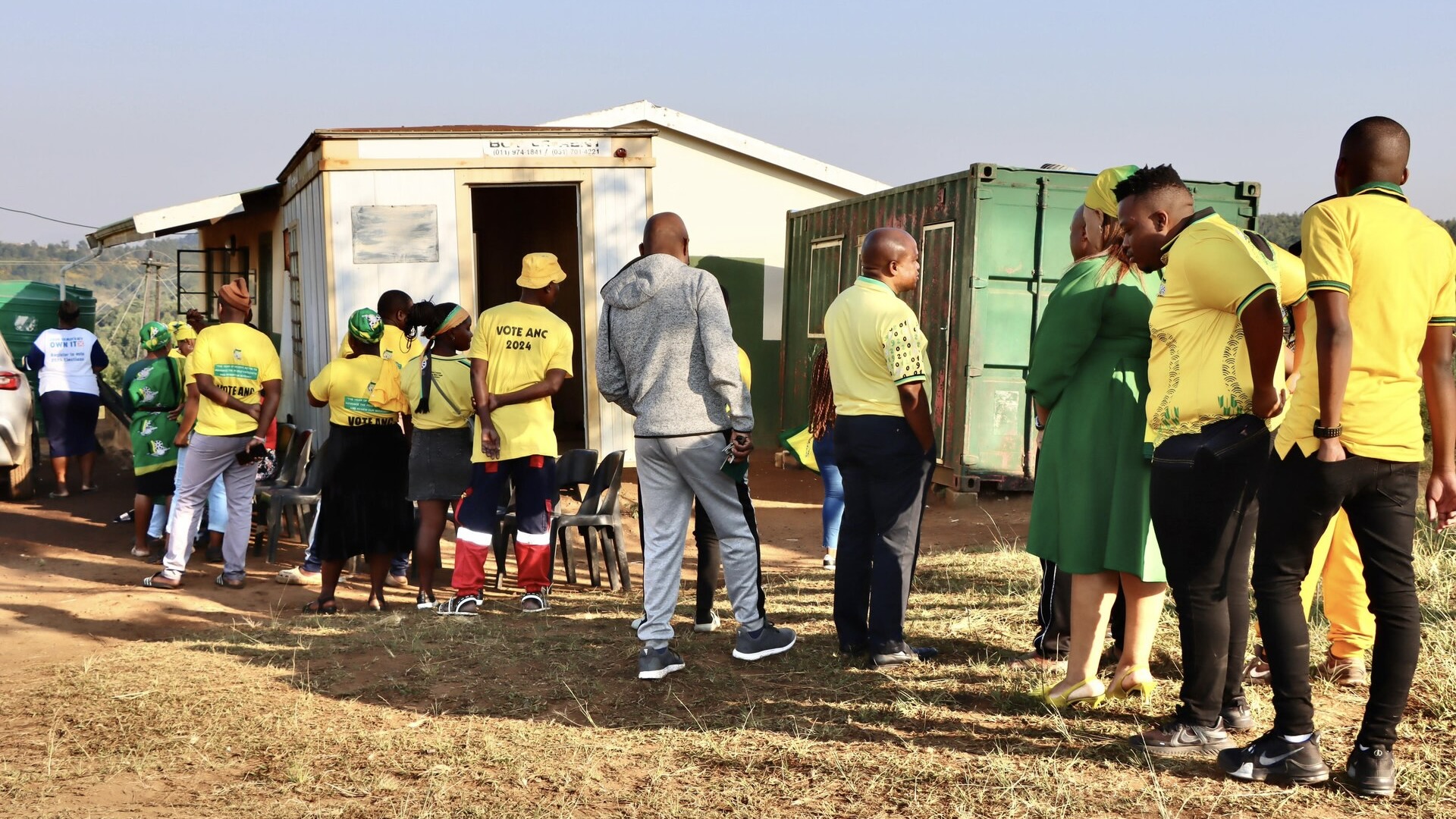Millions of people in South Africa cast their votes in Wednesday’s national and provincial elections. The results have been trickling in since voting closed, with official results expected to be announced over the weekend. Preliminary estimates indicate that the African National Congress (ANC) led by President Cyril Ramaposha will clinch first place with 44% of total votes cast but will likely not achieve the majority to be able to form a government.
In South Africa, the president needs a majority of at least 201 legislatures out of 400 seats in the National Assembly. Seats are allocated to parties as a proportion of votes they get.
For the last 30 years, the ANC had secured a comfortable majority, but this year the party will likely have to form a coalition to stay in power.
Second in estimated vote share to the ANC, and the ANC’s historic opposition, is the conservative, white, Democratic Alliance (DA) party, projected to win around 25% of votes. The DA stands out for opposing policies of land redistribution and reform, promoting pro-business, neoliberal economic policies like privatization of state assets, and for standing in opposition to South Africa’s anti-imperialist foreign policy. The DA has voiced strong support for Ukraine and criticized South Africa’s position towards Russia. It also strongly criticized the ANC for not condemning Hamas following the October 7 operation, and the party did not support South Africa’s ICJ case against Israel.
Led by Julius Malema, the Economic Freedom Fighters (EFF) will once again be the third-largest party in the National Assembly and is expected to score 9% of the votes. The EFF has called for for wealth and land redistribution to reverse the deeply-seated structural racism in the country as well as the nationalization of key industries.
This year’s election saw the entry of the uMkhonto weSizwe (MK) Party, associated with former president and ANC member Jacob Zuma. Named after the ANC’s former military wing, the MK Party’s emergence has caused turbulence within South Africa’s ruling party and has successfully attracted a portion of the ANC’s voter base. While nationally the MK Party’s scored 8%, in Zuma’s home province of KwaZulu-Natal, the new party secured 42%.
Analysts say that the EFF and MK are the most likely contenders to form a coalition with the ANC to achieve the necessary majority to form a government. Helen Zille of the DA told Reuters that her party “will do everything in our power to prevent an ANC, MK and EFF coalition. That would spook investors, it would tank the economy it would be a disaster for South Africa. So we are very committed to prevent that outcome.”





